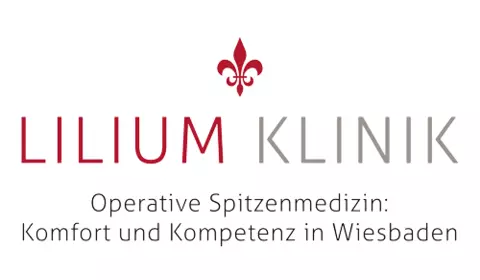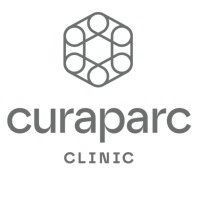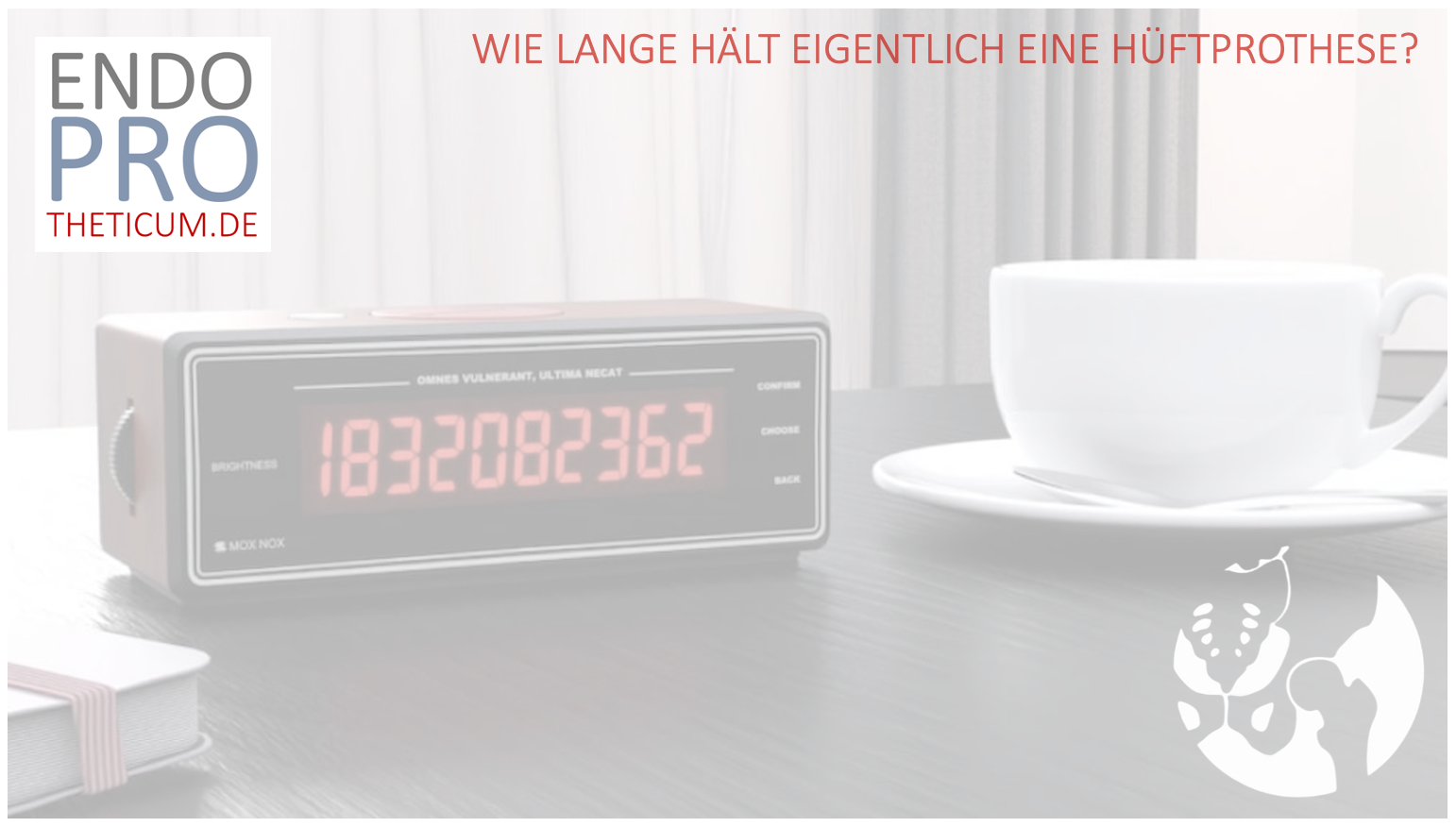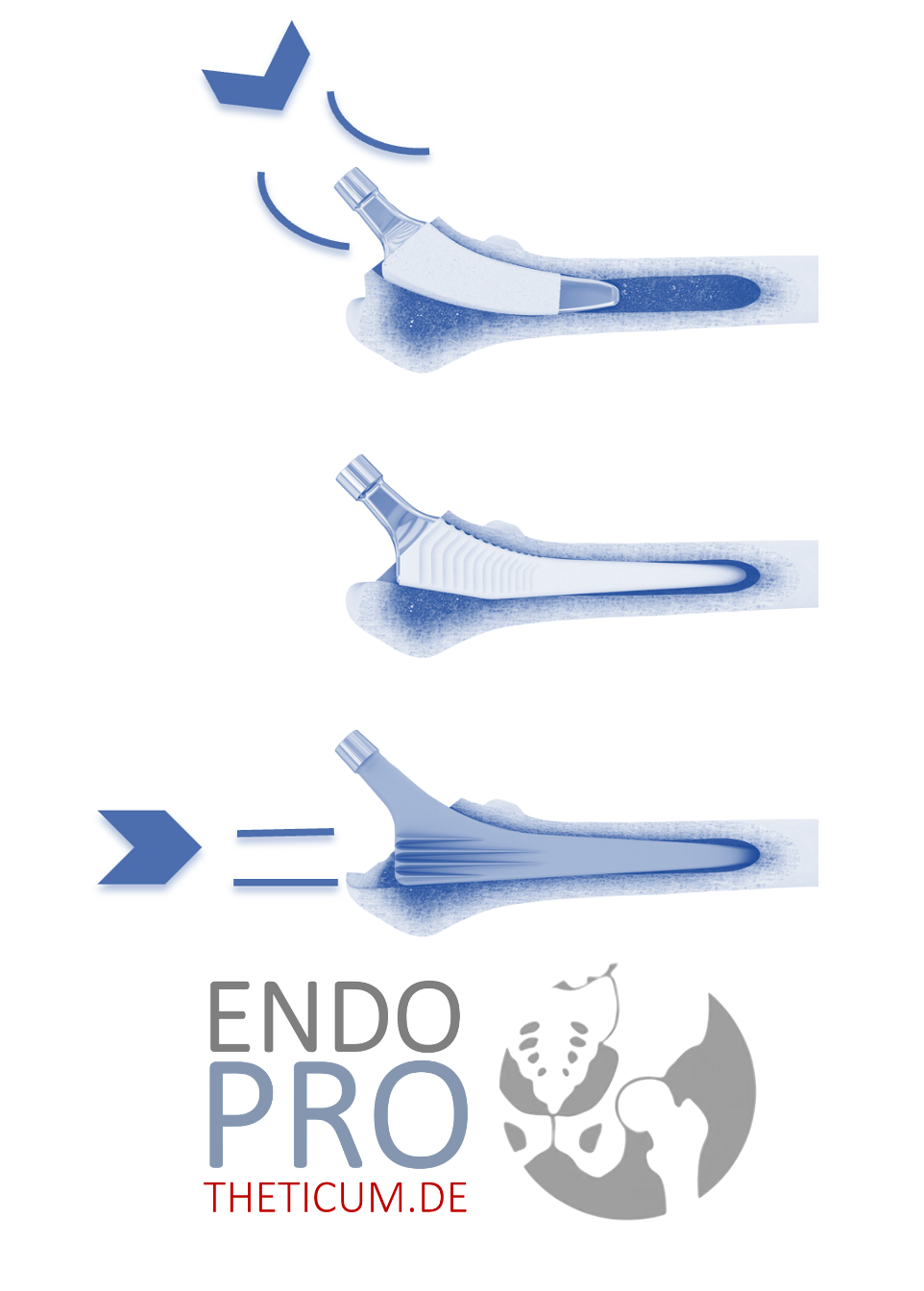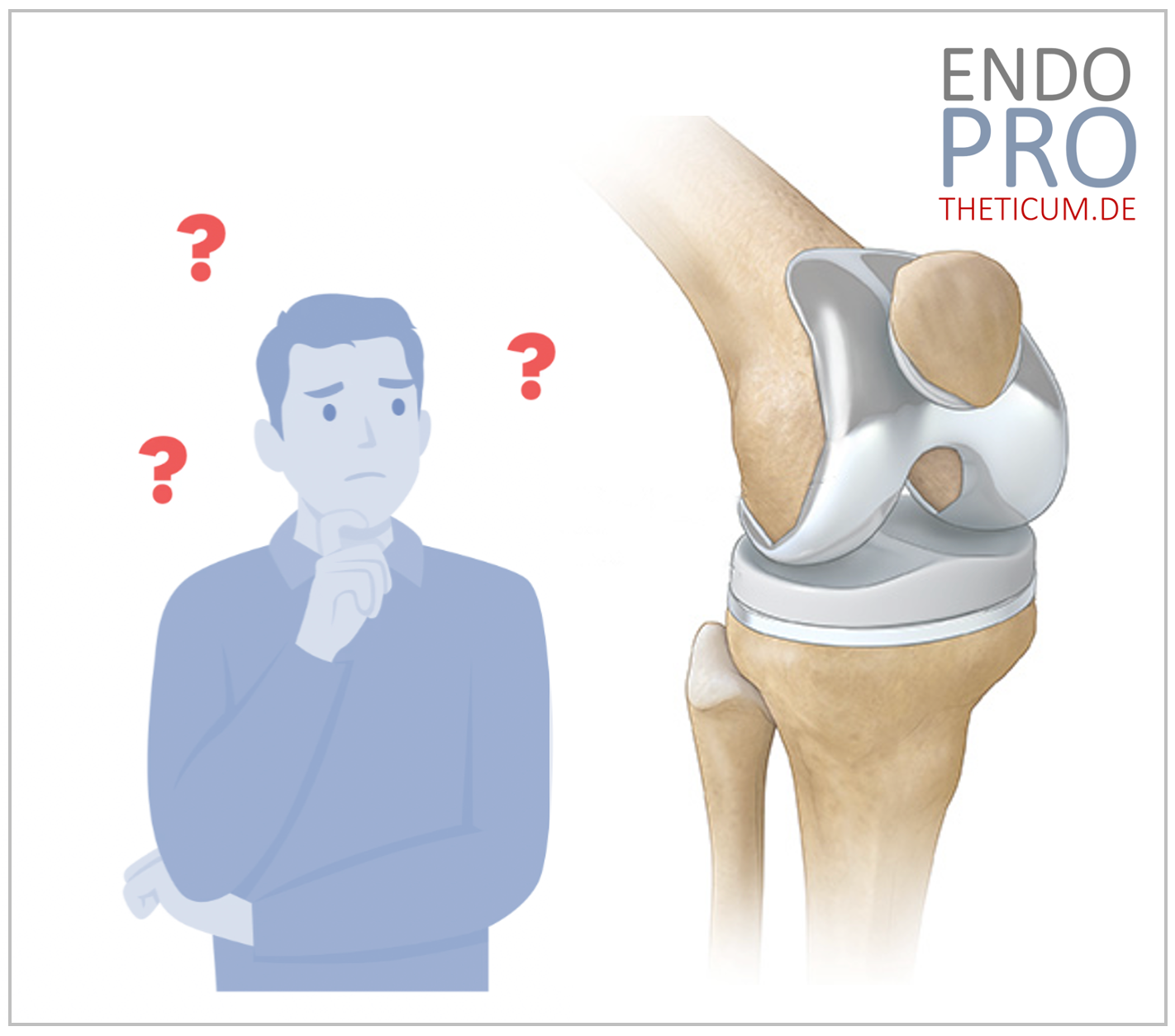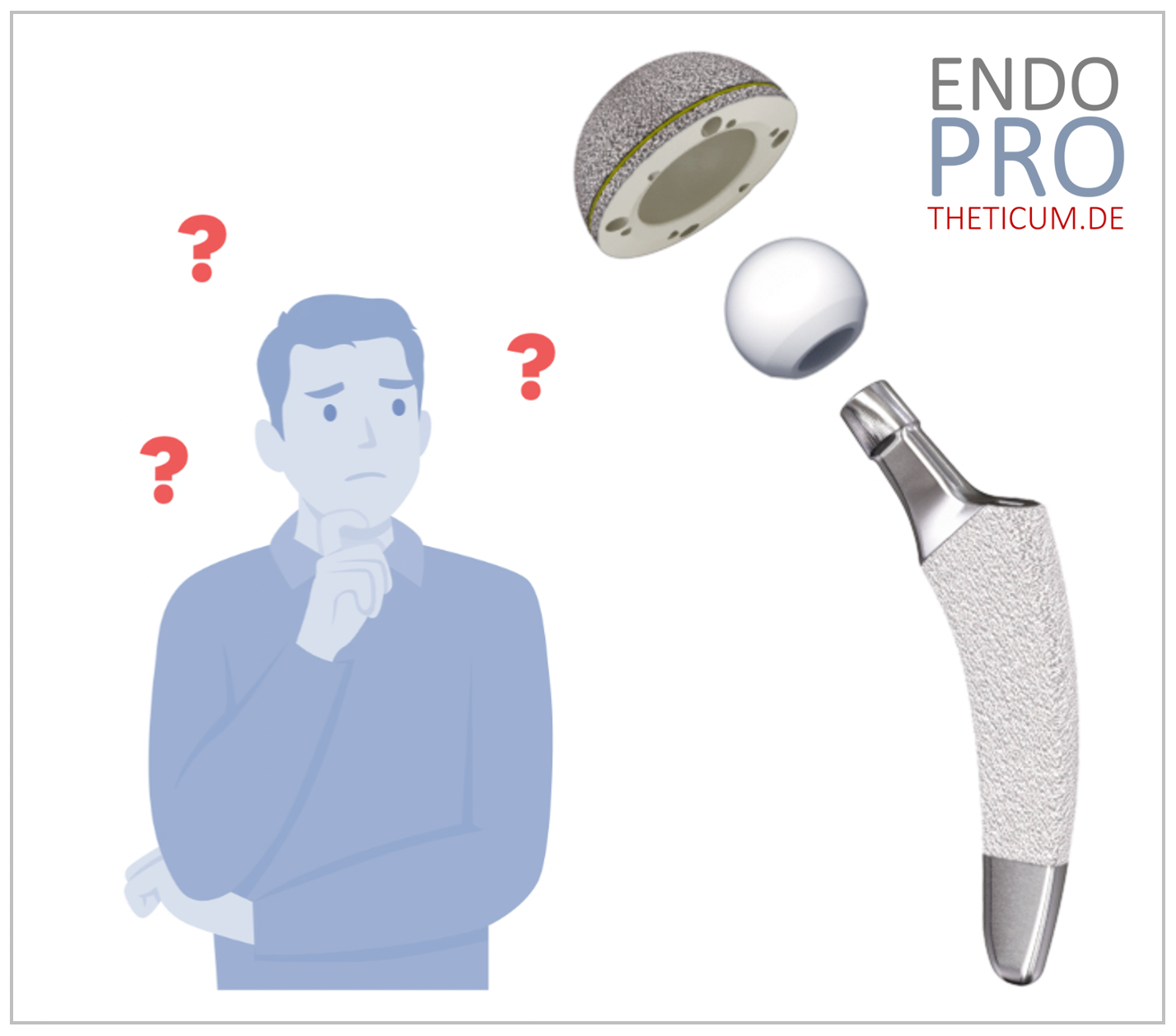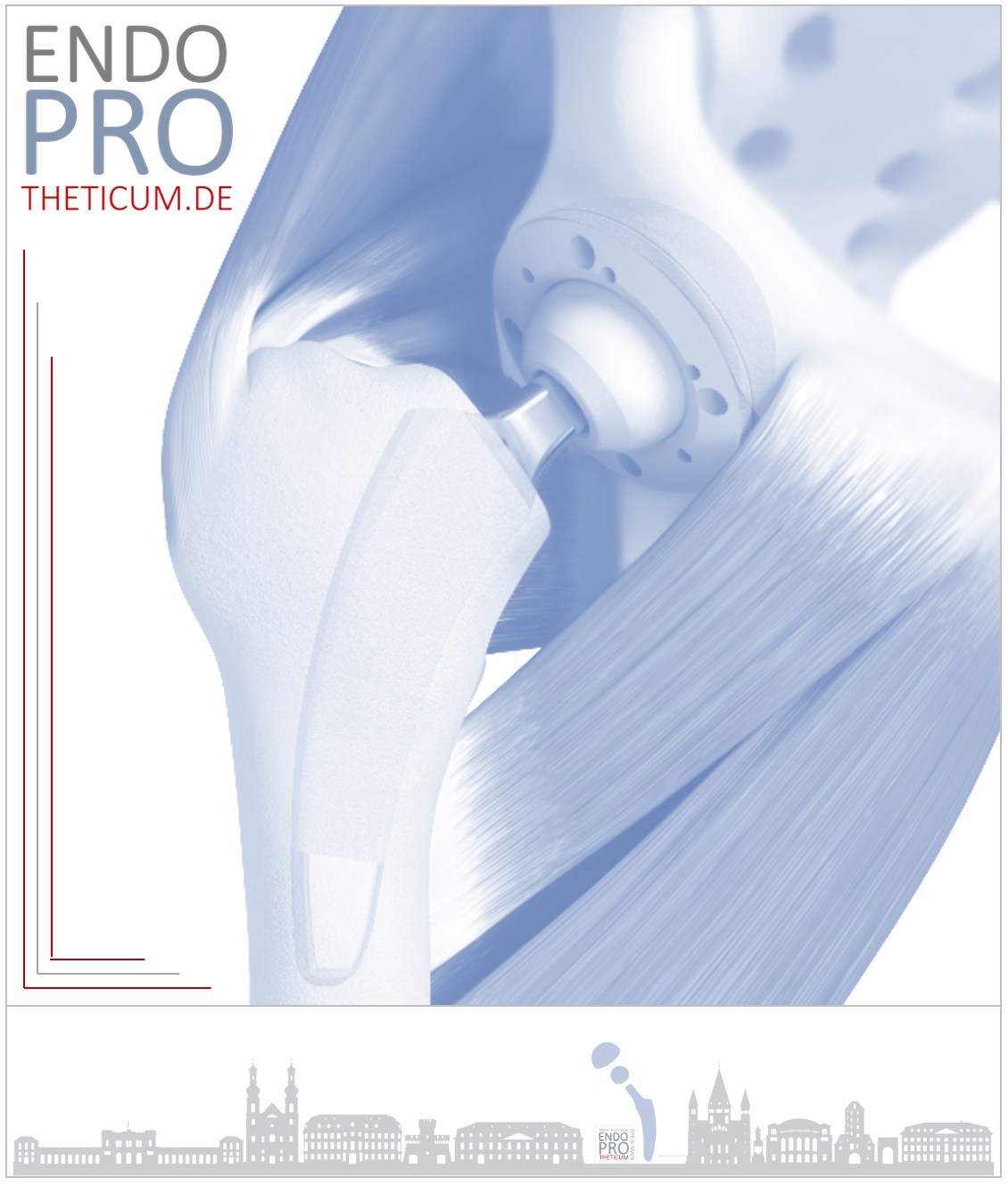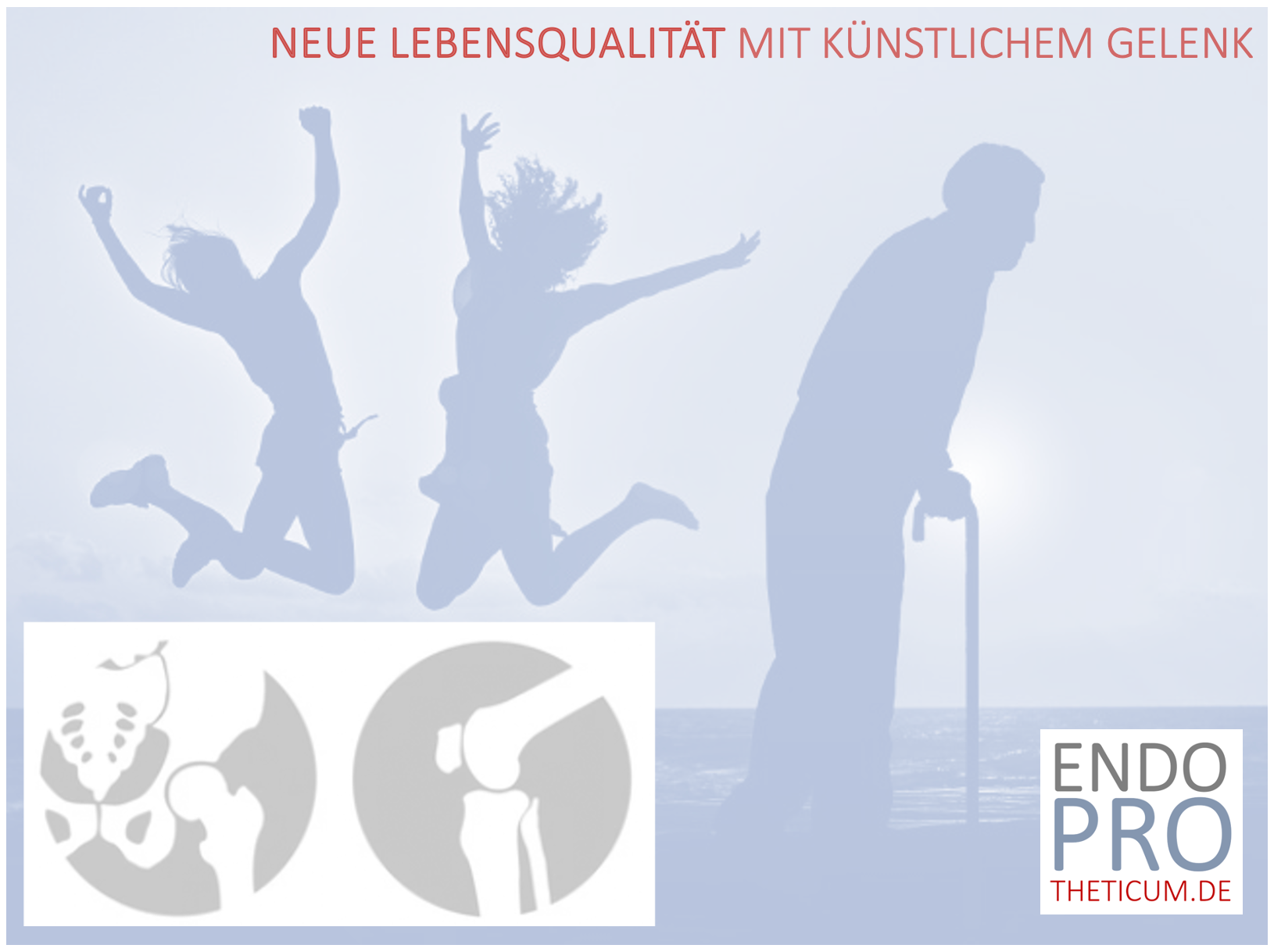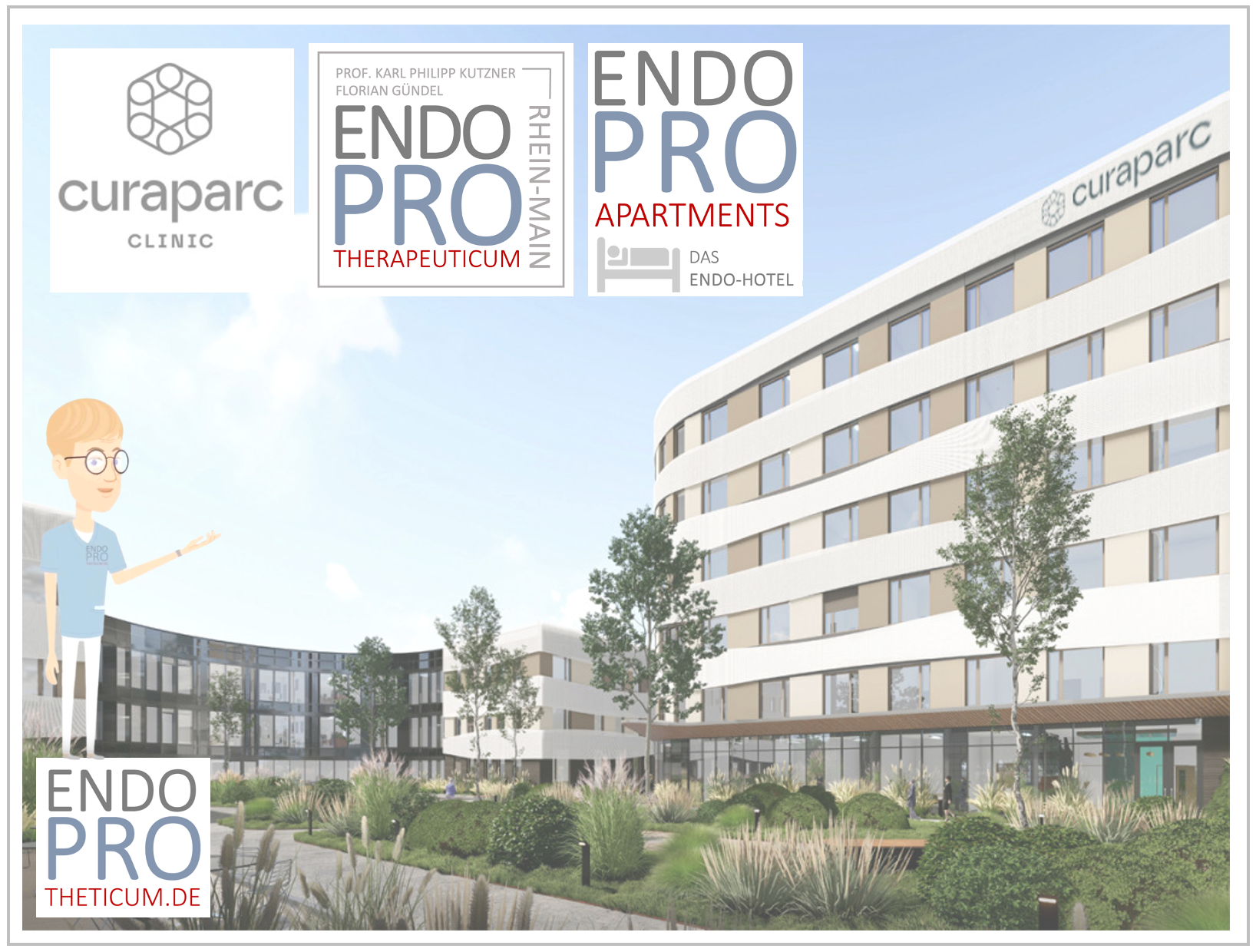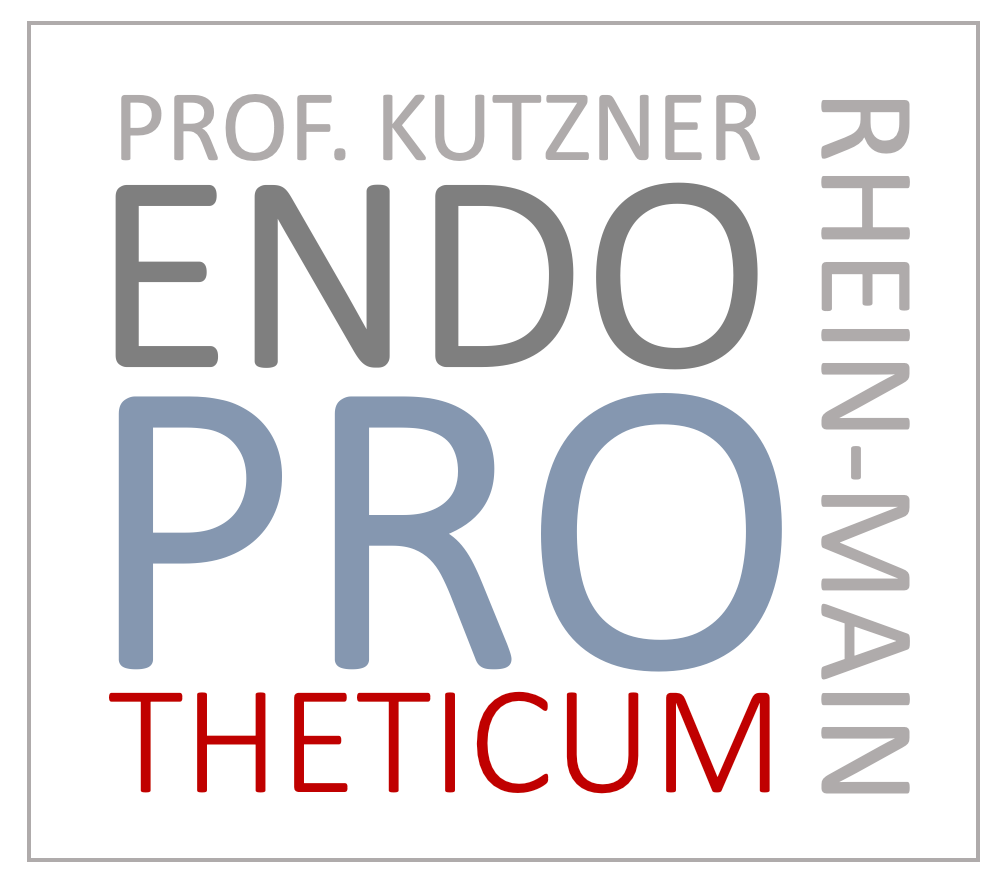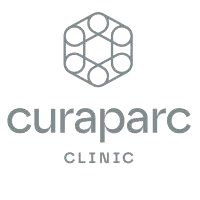Long wait for hip or knee replacement? – Tips for a faster surgery appointment
Long wait for hip or knee replacement? Get surgery faster now!

When pain dominates everyday life
Every day, people in Germany wake up with sharp pain in their hip or knee. Walks become torture, stairs an obstacle, and even sitting or lying down can become unbearable. The cause: a severely damaged joint – usually due to osteoarthritis. The solution: a hip or knee replacement .
Despite modern medicine and clear diagnoses, many patients are increasingly experiencing the same frustrating scenario: long waiting times for surgery. In some regions of Germany, patients wait several months or even a year before the longed-for joint replacement is finally implanted. This often means months of pain, loss of mobility, isolation, and frequently, inability to work.
In this comprehensive article we will show:
- Why the waiting time for a hip or knee replacement in public hospitals is getting longer and longer,
- Why even severely affected people no longer treated with priority,
- What urgent indications exist in endoprosthetics despite "planned operations",
- And most importantly: How you can get a surgery appointment faster – even if you have statutory health insurance!
We present solutions, show alternative care models and give concrete tips on how you can have surgery earlier – e.g. through innovative ways such as individual cost coverage in private clinics , for example in the curaparc-clinic Mainz or the LILIUM Clinic Wiesbaden , in close cooperation with the ENDOPROTHETICUM Rhein-Main .
1. The reality of waiting times – A system increasingly at its limit
1.1 Hip and knee replacements: Standardized high-performance medicine
In Germany, over 400,000 artificial joints implanted annually, including approximately 250,000 hip replacements and 150,000 knee replacements . These operations are considered highly successful, with excellent long-term results – provided they are performed at the right time. However, this is precisely the problem today: the optimal time has often long since passed by the time the surgery date finally arrives.
1.2 Overburdened hospitals – The reasons for long waiting times
Many patients rightly ask themselves: Why does it take so long for me to get my hip or knee replacement?
The reasons are multifaceted:
- Staff shortage : Nurses and operating room staff are chronically understaffed. Many surgeries have to be postponed due to a lack of teams.
- Bed closures : Ward beds remain empty because of a lack of nursing staff – not because there are no patients.
- Capacity bottlenecks : Public hospitals are operating at their limit. Every additional elective surgery has to be squeezed in between emergencies and tumor surgery.
- Prioritizing emergencies : Seriously injured or acutely ill people are rightly given priority. However, this negatively impacts elective, i.e., planned, procedures such as hip or knee replacements.
1.3 Why endoprosthetics is no longer a priority
It used to be common practice for people with severe joint degeneration to undergo surgery relatively quickly – especially if they were experiencing severe pain or difficulty walking. Today, that's different:
- Elective procedures are being systematically postponed.
- Even severely affected people with massive osteoarthritis have to wait weeks or months for a pre-operative consultation before being put off for further months for a surgery date.
- The result: chronic pain, increased need for medication, psychological stress – and an increased risk of poorer rehabilitation after surgery.
1.4 There are also urgent indications for hip and knee replacements
It is important to note that even though these are formally "planned procedures," there are situations in endoprosthetics that require urgent treatment . For example:
- Severe restriction of movement, e.g. patients who can no longer leave the house ,
- Rest pain despite strong painkillers
- Unstable joints, e.g. after joint dislocations (luxations),
- Incapacity for work with imminent job loss,
- Progressive bone loss (osteolysis),
- Joint misalignments with consequential damage to other structures.
In such cases, rapid surgical intervention is medically advisable and ethically required – but the system is not designed to make this possible.
1.5 Psychological consequences of long waiting times
Long waiting times are not only a medical challenge, but also a human tragedy:
- Depression and lack of motivation are increasing,
- Many patients feel abandoned,
- Chronic pain affects sleep patterns, social relationships, and overall quality of life.
Swift action is therefore urgently needed, not only from a medical but also from a human perspective.
1.6 Large regional differences in waiting times
Particularly problematic: Waiting times vary dramatically depending on the state or region. In some large city hospitals, patients with statutory health insurance wait up to 12 months for a knee replacement. In rural areas, on the other hand, it can be faster – if the surgery is even performed there at all. This is because many small hospitals are closing entire departments , as joint replacement surgery is no longer economically viable.
1.7 What do patients say? – Typical experiences
"I could barely walk anymore, but I was told I'd have to wait at least six months. The pain just kept getting worse."
– Mr. L., 68 years old, hip osteoarthritis
"I was sent from clinic to clinic. Waiting lists everywhere. Eventually, I went to a private clinic – and had my surgery three weeks later."
– Mrs. T., 62 years old, gonarthrosis
These statements reflect what many are experiencing: The system is increasingly failing when it comes to providing timely care for people with chronic pain.
2. Ways to get a faster surgery date – your options
2.1 In principle: Proactive instead of passive
Many patients accept long waiting times because they feel powerless against the system. But: Taking action can save time – sometimes even months! The important thing is:
- Gather information early,
- Consider alternatives
- Actively involve your own health insurance company,
- Seek advice from your family doctor or orthopedist,
- Contact specialized clinics directly – including private clinics.
2.2 Tip 1: Get several opinions
Especially in endoprosthetics, it is advisable several medical opinions . Why?
- The assessment of urgency can vary.
- Some clinics recognize urgent indications more quickly and prioritize them.
- Alternative proposals such as partial dentures (e.g., unicompartmental knee replacements) can be implemented more quickly.
Specifically ask for a second opinion from an experienced endoprosthetics specialist .
2.3 Tip 2: Search nationwide – also in private clinics
Many patients only look for surgery appointments within a 20-30 km radius. However, it's worthwhile to research regionally or even nationwide , especially if the patient is suffering greatly. Some specialized clinics with high surgical capacity also offer timely treatment for those with statutory health insurance – for example, through:
- Reimbursement of costs (according to §13 SGB V)
- Individual decisions by the health insurance company
- Cooperation agreements with legally approved private clinics
2.4 Tip 3: Take advantage of the option of individual cost coverage
A real insider tip, which is often not communicated, is the option of individual cost coverage for those with statutory health insurance. This allows treatment in a private clinic – at the expense of the statutory health insurance .
How does that work?
- They have a medically justifiable, urgent indication (e.g., severe impairment, incapacity to work).
- no timely surgery appointments available in your region (e.g., not for another 6 months).
- You find a clinic (even a private clinic ) that could perform the surgery at short notice.
- Your attending physician will write a statement explaining why an operation is medically necessary soon.
- You submit an application to your health insurance company for reimbursement of individual costs in accordance with Section 13 Paragraph 2 of the German Social Code, Book V (SGB V) .
- With some persuasion and patience, many health insurance companies will approve this route – especially if waiting times elsewhere are unacceptable .
2.5 Why does this work so well? – The example of curaparc-clinic and LILIUM Clinic
The curaparc-clinic in Mainz and the LILIUM Clinic in Wiesbaden are two examples of state-of-the-art private clinics that regularly operate on patients with statutory health insurance on a case-by-case basis – with great success:
- Short waiting times : Surgery appointments often within 2–4 weeks,
- Individual support : by specialists, e.g. Prof. Dr. Karl Philipp Kutzner,
- Modern technology : Digital surgical planning, navigated implantation, minimally invasive procedures,
- Smooth cooperation with health insurance funds : The clinics provide support with the application process.
👉 Patients with a clear indication and severe symptoms often receive their hip or knee replacement here more quickly – without months of waiting.
2.6 The right partner: The Endoprotheticum Rhein-Main
The ENDOPROTHETICUM Rhein-Main, based in Mainz, is one of the most renowned addresses for artificial joints in Germany – under the direction of Prof. Dr. Karl Philipp Kutzner , one of the leading specialists in hip and knee prosthetics.
What distinguishes the endoprosthetic:
- Absolute specialization in endoprosthetics – no distractions from other fields.
- Personal consultation with detailed diagnostics,
- Specific support in organizing a quick surgery appointment ,
- Cooperation with several clinics – including the curaparc-clinic and the LILIUM Clinic,
- Individual assistance with the reimbursement of individual costs , including the formulation of medical justifications and coordination with health insurance companies.
Patients regularly report that the Endoprostheticum team enabled them to have surgery several months faster than would have been possible in the public system.
2.7 The most important points summarized: Your roadmap to a faster surgery date
✅
Act early – not just in the late stages of osteoarthritis
✅ Get multiple opinions – including from endoprosthetics specialists
✅ Compare clinics – including those outside your region and in the private sector
✅ Check coverage for individual costs – ideally with medical support
✅ Contact Endoprotheticum Rhein-Main – for advice and assistance with scheduling an appointment
3. Why the system fails – Structural causes of long waiting times
3.1 Health economics meets reality
The German healthcare system is internationally regarded as high-quality, modern, and easily accessible. However, this reputation is crumbling – especially when it comes to planned surgeries such as hip or knee . The reason: Economic pressures and structural perverse incentives have thrown the system off balance.
3.2 Staff shortage – the limiting factor
A key problem: There is a shortage of qualified personnel everywhere – especially in nursing and in the operating room.
- More and more specialists are leaving hospital work,
- There are no new arrivals
- Services are being merged
- Surgeries have to be cancelled because no staff is available
- Entire wards are being closed – not because of low demand, but because of staff shortages .
Specifically, this means that even if a patient urgently needs hip replacement there is simply no one who can perform the surgery .
3.3 The Prioritization Crisis: Emergency Care Beats Pain Patient
In German hospitals, the rule is: emergencies take priority . This is medically and ethically correct – but has fatal consequences for chronically ill people.
- A patient with polytrauma, stroke, or tumor will undergo surgery at any time.
- A patient with months of pain at rest and end-stage osteoarthritis is repeatedly put on hold .
- Even if the person affected can barely walk or is unable to work .
As a result, hip and knee replacements are becoming low-priority procedures – with dramatic consequences.
3.4 Bureaucracy as a brake
Another factor: the increasing bureaucracy in the healthcare system . Doctors and nurses often spend more time on documentation than with patients . Hospitals have to carry out complex coding and billing – instead of focusing on efficient processes.
Consequences:
- Less time for medical planning,
- Less flexibility in appointment scheduling,
- Delays in surgery planning.
3.5 Consequences for endoprosthetics: The "displacement effect"
Endoprosthetics – the implantation of artificial hip or knee joints – is particularly affected by these developments:
- It is labor- and personnel-intensive ,
- It requires well-coordinated teams, specially trained surgeons, postoperative monitoring and physiotherapy
- It is indeed easy to plan for – but not life-threateningly acute .
Therefore, it is repeatedly pushed aside whenever emergencies or more economically "lucrative" interventions occur.
This so-called displacement effect leads to patients with osteoarthritis waiting months for a prosthesis – even though the procedure would have been medically indicated long ago.
3.6 The system of statutory health insurance further complicates access
There are also systemic hurdles outside of hospitals:
- Orthopedic specialists with public health insurance accreditation often have long waiting times for new patients .
- It is difficult to get appointments for preliminary consultations or second opinions
- In some regions there are too few practicing orthopedic surgeons – leading to regional under-provision.
Patients thus end up in a waiting loop before a surgery date can even be discussed.
3.7 Private alternatives as a lifeline
Against this backdrop, it is not surprising that more and more patients are looking for alternatives outside the public system . And indeed, private clinics offer an important addition here – especially for:
- People experiencing high levels of suffering,
- Working people who cannot be absent for months at a time,
- Self-employed individuals or family caregivers,
- Elderly people with fears of declining mobility.
The principle of individual cost coverage (see Part 2) makes this private care possible even for those with statutory health insurance – and could become an important bridge until the public system is reformed.
4. Conclusion, instructions & your path to a faster hip or knee replacement
4.1 Summary – The most important points at a glance
🔹 The waiting time for a
hip or
knee replacement is several months in many regions – sometimes over a year.
🔹 Reasons: staff shortages, prioritization of emergencies, the DRG system, and capacity bottlenecks in public hospitals.
🔹 Despite severe pain and limited mobility , patients requiring joint replacement surgery are rarely given priority .
solutions for faster surgery appointments exist , particularly through
private clinics with individual cost coverage .
🔹 Facilities such as the curaparc-clinic Mainz , the
LILIUM Clinic Wiesbaden , and the
ENDOPROTHETICUM Rhein-Main provide effective assistance to those affected – including those with statutory health insurance.
4.2 Step-by-step instructions: How to get to surgery faster
✅ Step 1: Secure the diagnosis
Have the need for a hip or knee replacement confirmed by your orthopedist – including X-ray or MRI findings.
✅ Step 2: Document your complaints
Keep a pain diary and document:
- Rest pain,
- Mobility restrictions,
- Medications,
- Restrictions in everyday life and professional life.
This information will later help with the medical justification for the reimbursement of individual costs.
✅ Step 3: Contact the ENDOPROTHETICUM Rhein-Main
The specialists there will review your documents, advise you individually and actively support you in finding a quick surgery appointment – e.g. at the curaparc-clinic or LILIUM Clinic.
📍 Website:
www.endoprotheticum.de
📍 Location : Mainz, Rhine-Main area
📍 Director: Prof. Dr. Karl Philipp Kutzner
✅ Step 4: Submit an application for reimbursement of individual costs
With the support of the Endoprostheticum and your doctor, you submit the application to your health insurance company in accordance with Section 13 Paragraph 2 of the German Social Code, Book V (SGB V) – including all documents, justifications and evidence of long waiting times.
✅ Step 5: Secure an appointment & have the surgery performed
Once the cost approval is received (usually after 2-4 weeks), your operation can take place in a partner clinic – often within a few days to a few weeks .
4.4 Conclusion: Those who are informed often receive faster treatment
The supply of artificial joints is experiencing a shortage – but there are alternatives . Those who take action, are well-prepared, and receive proper medical support have a real chance of getting a faster surgery date – even those with statutory health insurance.
The team at Endoprotheticum Rhein-Main knows the routes, knows the procedures and knows what matters in individual case decisions .
Are you experiencing severe pain and have a clear indication for surgery?
Don't wait passively.
Seek advice – and take action.
4.5 Call to Action – We are happy to help!
Do you need a hip or knee replacement soon?
📞
Schedule a consultation with Endoprotheticum Rhein-Main now
🌐
www.endoprotheticum.de
📍 Practice of Prof. Dr. Karl Philipp Kutzner, Mainz
💬 We support you every step of the way – from diagnosis to surgery.
MAKE AN APPOINTMENT?
You are welcome to make an appointment either by phone or online .







